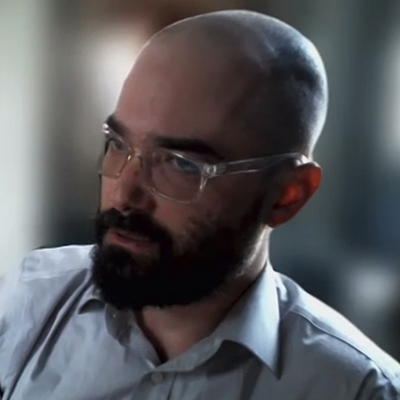Former FERC Chair Richard Glick and commission staffer Pamela Quinlan announced Wednesday that they have launched a new consulting firm called GQ New Energy Strategies, which is focused on navigating customers through the clean energy transition.
Quinlan, who left FERC earlier this month, was most recently a senior policy adviser to Chair Willie Phillips and was the agency’s chief of staff under Glick.
Glick stepped down from FERC early this year after his renomination for a new term was sunk because of opposition from Sen. Joe Manchin (D-W.Va.). After that, his job search included pursuing other opportunities at law firms, but Glick told RTO Insider Wednesday that setting up his own firm with Quinlan was a better fit.
“I get to work with Pamela,” Glick said. “I always enjoyed working with her before. Secondly, as I got to talk with law firms, I realized that there’s a lot of potential clients out there that I think might be interested in having us do work for them — and when you go to law firms, there’s all sorts of conflicts with other clients and so on. You don’t always get to work on the clients you want to work on.”
The new consulting business avoids those conflicts and enables Glick and Quinlan to work with whom they want to on the issues they want to, he added.
Prior to joining the commission in 2017, Glick held senior positions with the Senate Energy and Natural Resources Committee, the U.S. Department of Energy and Avangrid (NYSE:AGR). Quinlan has more than 18 years of experience in the sector, having previously worked at Consolidated Edison (NYSE:ED) and Standard and Poor’s.
GQ New Energy Strategies will provide market insights and strategy, analyze the impact of regulatory proposals on a client’s business, advocate for beneficial policy and legislative outcomes, and help clients solve problems and identify opportunities as the energy business continues to change, Glick said.
He said he hopes to help clients navigate the energy transition in a way that ensures the grid remains reliable, the right investments are made, and the transition continues at a pace needed to avoid global warming. The Biden administration and other policymakers have set ambitious goals to make that transition happen in the next decade or two.
“There’s no doubt the goals are ambitious,” Glick said. “Having said that, you know, and I always say this … what are your choices? Look at just extreme weather over the last five years. There’s clearly a trend going on here that is very harmful to everything — our way of life, the economy, clearly our children’s future and their children’s futures.”
The Biden administration recognizes that and is working as hard as it can under the confines of the law, he added. Some of the big challenges include greatly expanding the transmission grid, speeding up the interconnection queues and ensuring reliability as the grid takes on more intermittent, renewable resources.
“It’s not going to be easy,” Glick said. “But I don’t think you can just throw up your hands and say you just can’t do it. You have to basically go get to work and do what you can do to make to make it a reality.”
The transmission agenda that Glick and Quinlan kicked off at FERC is a key part of that effort. Glick said he was hopeful their proposals would soon translate into some final rules, something Phillips has repeatedly said he wants to achieve.
The transition involves plenty of politics, which contributed to Glick needing a new job, and now Congress is paying closer attention to FERC than it has in the past.
“That has benefits, but it also has a downside,” Glick said. “The downside is nominees are put through the wringer a little more vigorously than they have [been] in the past.”
But Glick doesn’t think any of his former colleagues on the commission are influenced by such political pressure.
“None of the four existing commissioners, I don’t think they’re sitting there saying, ‘I better not do this because I won’t be able to get another term.’ That’s not in their mindset; their mindset is they came to do a public service, and that’s what they’re doing,” he said.

